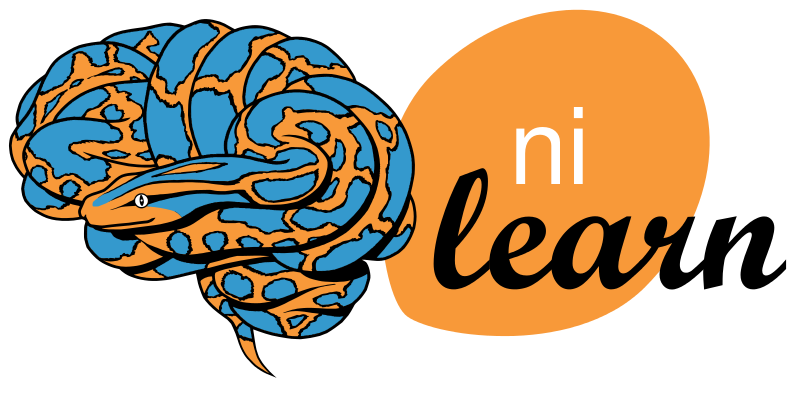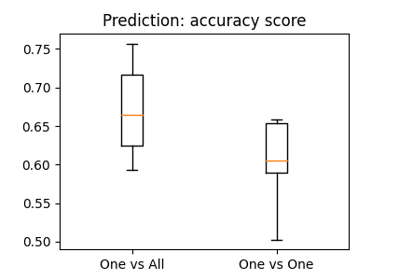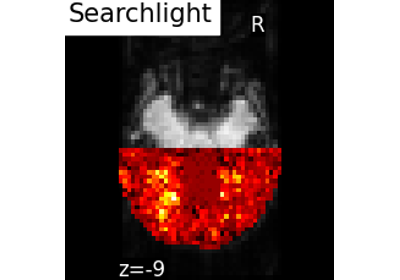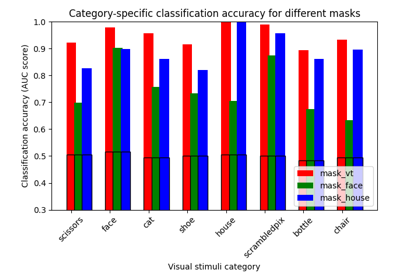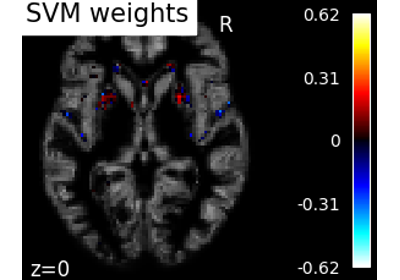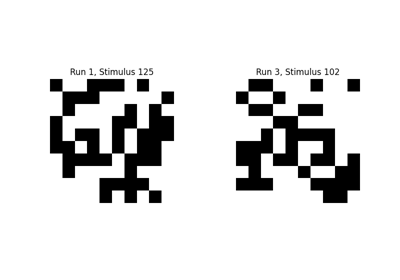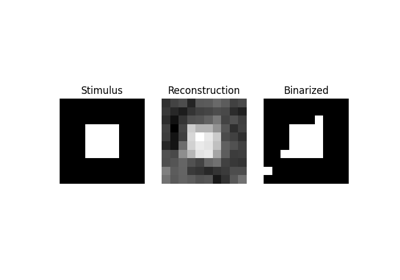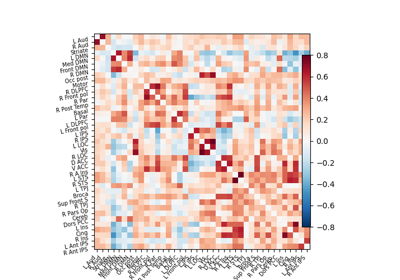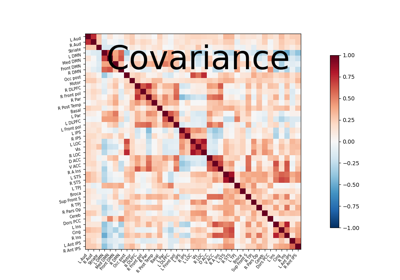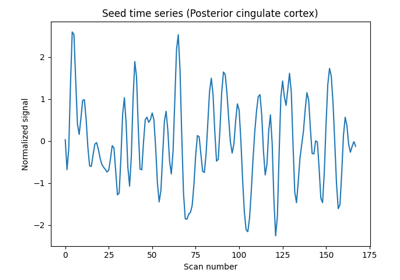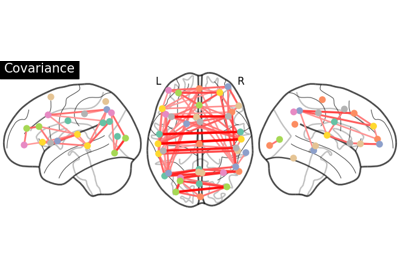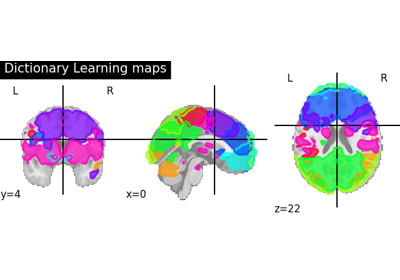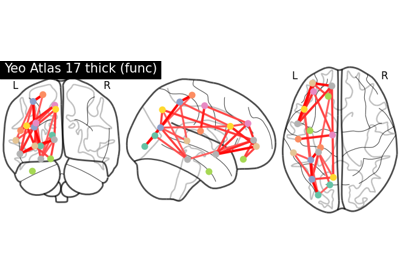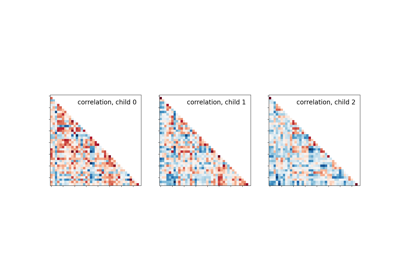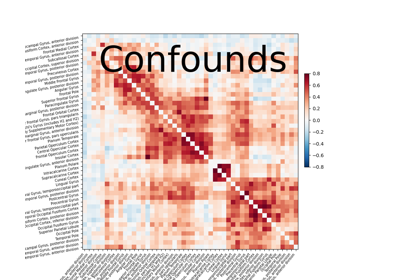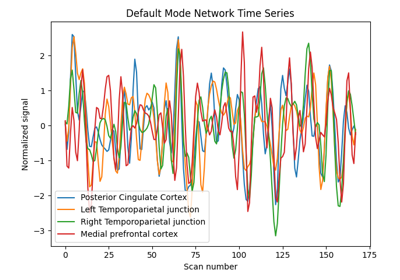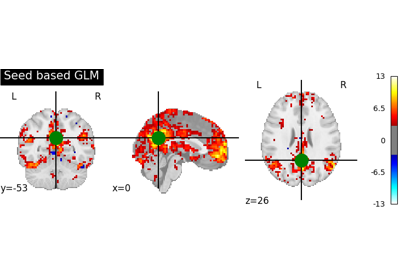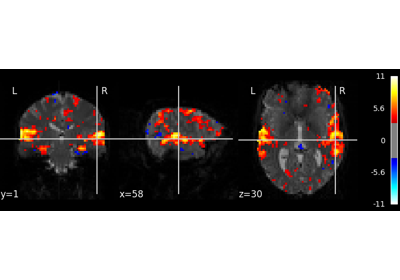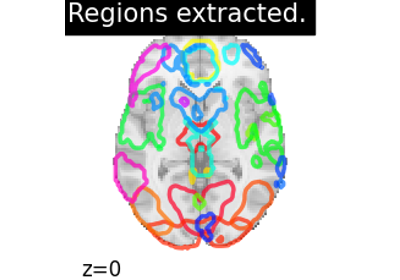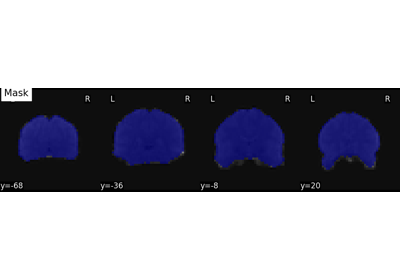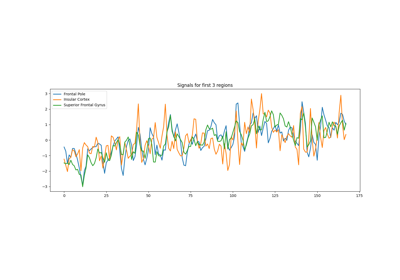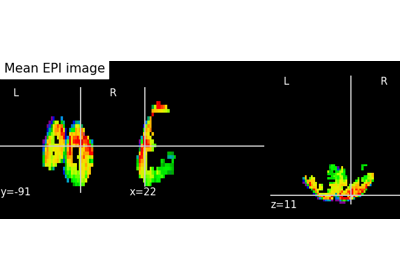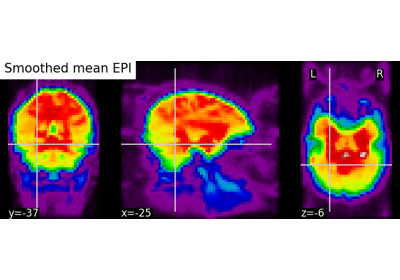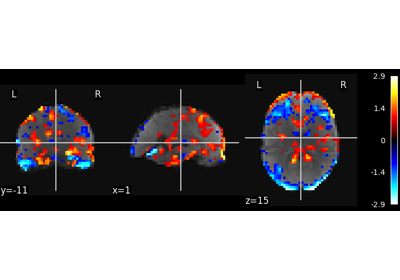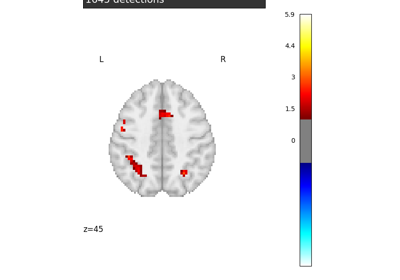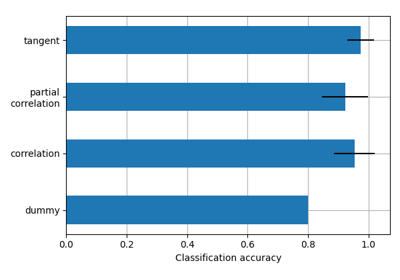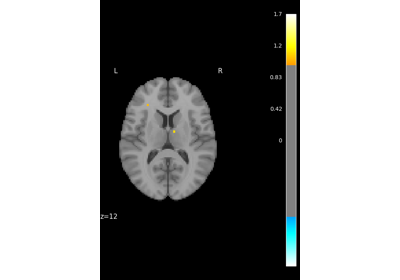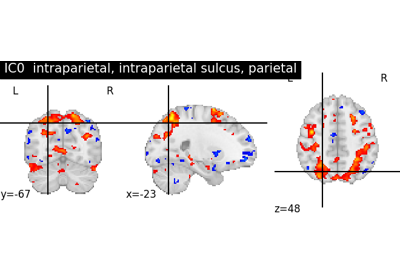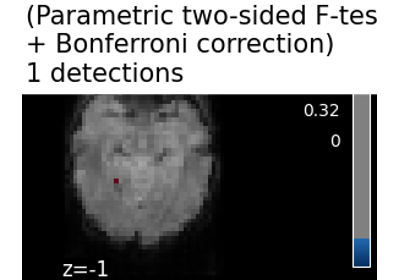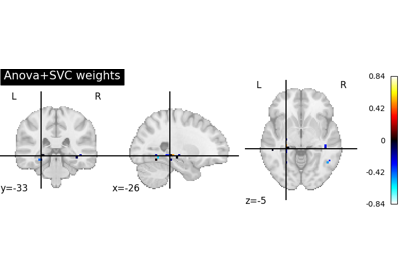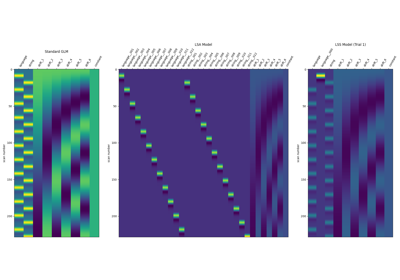Note
This page is a reference documentation. It only explains the class signature, and not how to use it. Please refer to the user guide for the big picture.
8.7.1. nilearn.maskers.BaseMasker¶
- class nilearn.maskers.BaseMasker[source]¶
Base class for NiftiMaskers.
- __init__(*args, **kwargs)¶
Initialize self. See help(type(self)) for accurate signature.
- abstract transform_single_imgs(imgs, confounds=None, sample_mask=None, copy=True)[source]¶
Extract signals from a single 4D niimg.
- Parameters
- imgs3D/4D Niimg-like object
See http://nilearn.github.io/manipulating_images/input_output.html Images to process. It must boil down to a 4D image with scans number as last dimension.
- confoundsCSV file or array-like, optional
This parameter is passed to signal.clean. Please see the related documentation for details. shape: (number of scans, number of confounds)
- sample_maskAny type compatible with numpy-array indexing, optional
shape: (number of scans - number of volumes removed, ) Masks the niimgs along time/fourth dimension to perform scrubbing (remove volumes with high motion) and/or non-steady-state volumes. This parameter is passed to signal.clean.
New in version 0.8.0.
- copyBoolean, optional
Indicates whether a copy is returned or not. Default=True.
- Returns
- region_signals2D numpy.ndarray
Signal for each element. shape: (number of scans, number of elements)
- transform(imgs, confounds=None, sample_mask=None)[source]¶
Apply mask, spatial and temporal preprocessing
- Parameters
- imgs3D/4D Niimg-like object
See http://nilearn.github.io/manipulating_images/input_output.html Images to process. It must boil down to a 4D image with scans number as last dimension.
- confoundsCSV file or array-like, optional
This parameter is passed to signal.clean. Please see the related documentation for details. shape: (number of scans, number of confounds)
- sample_maskAny type compatible with numpy-array indexing, optional
shape: (number of scans - number of volumes removed, ) Masks the niimgs along time/fourth dimension to perform scrubbing (remove volumes with high motion) and/or non-steady-state volumes. This parameter is passed to signal.clean.
New in version 0.8.0.
- Returns
- region_signals2D numpy.ndarray
Signal for each element. shape: (number of scans, number of elements)
- fit_transform(X, y=None, confounds=None, sample_mask=None, **fit_params)[source]¶
Fit to data, then transform it
- Parameters
- XNiimg-like object
See http://nilearn.github.io/manipulating_images/input_output.html
- ynumpy array of shape [n_samples], optional
Target values.
- confoundslist of confounds, optional
List of confounds (2D arrays or filenames pointing to CSV files). Must be of same length than imgs_list.
- sample_masklist of sample_mask, optional
List of sample_mask (1D arrays) if scrubbing motion outliers. Must be of same length than imgs_list.
New in version 0.8.0.
- Returns
- X_newnumpy array of shape [n_samples, n_features_new]
Transformed array.
- inverse_transform(X)[source]¶
Transform the 2D data matrix back to an image in brain space.
- Parameters
- XNiimg-like object
See http://nilearn.github.io/manipulating_images/input_output.html
- Returns
- imgTransformed image in brain space.
- get_params(deep=True)¶
Get parameters for this estimator.
- Parameters
- deepbool, default=True
If True, will return the parameters for this estimator and contained subobjects that are estimators.
- Returns
- paramsdict
Parameter names mapped to their values.
- set_params(**params)¶
Set the parameters of this estimator.
The method works on simple estimators as well as on nested objects (such as
Pipeline). The latter have parameters of the form<component>__<parameter>so that it’s possible to update each component of a nested object.- Parameters
- **paramsdict
Estimator parameters.
- Returns
- selfestimator instance
Estimator instance.
